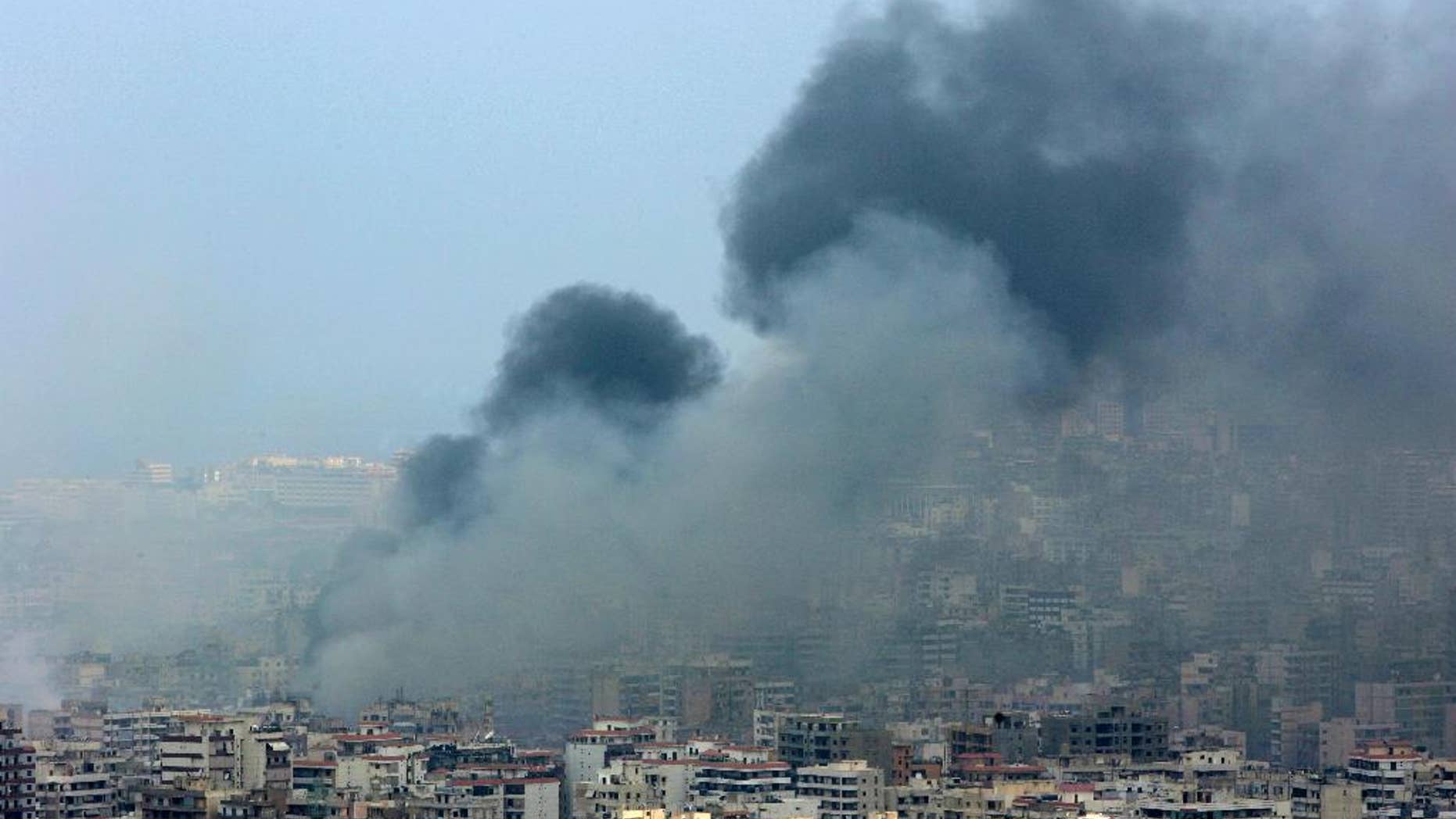Protecting Israeli Diplomatic Staff: A Response To Rising Threats

Table of Contents
The Evolving Threat Landscape
The threats to Israeli diplomatic staff are multifaceted and constantly evolving. Understanding this complex landscape is crucial for effective risk mitigation and the implementation of robust security protocols.
Terrorism and Extremist Groups
Terrorist organizations and extremist groups pose a significant and persistent threat to Israeli diplomatic personnel worldwide. These groups often target Israeli interests to advance their political agendas, demonstrating a willingness to employ violence and lethal force.
- Examples of past attacks: The bombing of the Israeli embassy in Buenos Aires (1992), the attack on the Israeli embassy in New Delhi (2021), and numerous smaller-scale attacks targeting diplomats and embassy staff highlight the persistent threat.
- Evolving tactics: These groups are constantly adapting their tactics, incorporating cyberattacks, kidnapping attempts, and sophisticated surveillance techniques to circumvent security measures. The use of improvised explosive devices (IEDs) also remains a significant concern.
- Regional variations in threat levels: Threat levels vary significantly depending on the geopolitical context and the presence of hostile actors in specific regions. Some areas present a higher risk due to active conflict or the presence of powerful terrorist organizations.
- Motivations: The motivations behind these attacks are diverse, ranging from anti-Israel sentiment and ideological extremism to the pursuit of strategic goals aimed at undermining Israeli influence and international standing. The unpredictable nature of these motivations makes predicting and preventing such attacks exceptionally challenging.
State-Sponsored Threats
Beyond non-state actors, Israeli diplomatic staff also face potential threats from state-sponsored actors or their proxies. These threats can range from subtle harassment and surveillance to overt acts of aggression.
- Examples of state-sponsored harassment: This can include surveillance, intimidation tactics, and the dissemination of disinformation campaigns aimed at discrediting Israeli diplomats and undermining their work.
- Potential for attacks: In some cases, states may directly or indirectly support attacks against Israeli diplomatic missions, providing logistical support, weapons, or intelligence to non-state actors.
- Geopolitical factors: The geopolitical landscape plays a crucial role in shaping state-sponsored threats. Regional rivalries, international conflicts, and changing alliances all influence the level of risk faced by Israeli diplomats.
Cybersecurity Threats
The digital age presents new and significant challenges to the security of Israeli diplomatic staff. Cyberattacks targeting diplomatic communications, infrastructure, and sensitive data represent a growing threat.
- Data breaches: Hacking attempts to steal sensitive information, such as diplomatic cables, intelligence reports, and personal data of diplomats and staff.
- Disinformation campaigns: The spread of false or misleading information designed to damage Israel's reputation or influence political decisions.
- Sabotage: Cyberattacks aimed at disrupting embassy operations, communications systems, or critical infrastructure.
- Robust cybersecurity protocols: Implementing robust cybersecurity protocols, including strong encryption, advanced threat detection systems, and regular security audits, is crucial for protecting Israeli diplomatic staff from these threats.
Security Measures and Protocols
Protecting Israeli diplomatic staff requires a layered approach encompassing intelligence gathering, physical security, and comprehensive personnel training.
Intelligence Gathering and Threat Assessment
Proactive intelligence gathering and rigorous threat assessment are fundamental to preemptive security. This involves a complex process of information collection, analysis, and dissemination.
- Methods of intelligence gathering: Utilizing human intelligence (HUMINT), signals intelligence (SIGINT), open-source intelligence (OSINT), and other methods to identify potential threats.
- Analysis of threat information: Analyzing gathered intelligence to assess the credibility, severity, and potential impact of threats.
- Collaboration with host countries: Establishing strong working relationships with host country security services to share intelligence and coordinate security efforts.
- Informing security decisions: The intelligence gathered directly informs security decisions, resource allocation, and the deployment of personnel to mitigate identified risks.
Physical Security Measures
Robust physical security measures are critical for protecting embassies, consulates, and the personnel working within them. These measures involve a combination of technological solutions and security personnel.
- Perimeter security: Employing advanced surveillance technologies, such as CCTV cameras, motion detectors, and perimeter intrusion detection systems.
- Access control: Implementing strict access control protocols, including biometric identification systems, security checkpoints, and visitor logs.
- Surveillance systems: Utilizing advanced surveillance systems for real-time monitoring and threat detection.
- Armed guards: Deploying trained security personnel to protect diplomatic missions and personnel.
- Emergency response plans: Developing and regularly practicing comprehensive emergency response plans to effectively handle security incidents.
Personnel Security Training
Providing comprehensive security training for diplomats and staff is paramount. This training equips them with the knowledge and skills to recognize and respond to potential threats.
- Threat awareness training: Educating personnel about potential threats, including recognizing suspicious activities, identifying potential risks, and maintaining situational awareness.
- Self-defense training: Providing basic self-defense skills and techniques to help diplomats protect themselves in emergency situations.
- Emergency procedures: Training diplomats and staff on emergency procedures, including evacuation protocols, communication protocols, and reporting procedures.
- Communication protocols: Establishing clear and effective communication protocols for reporting security incidents and maintaining contact with security personnel.
International Collaboration and Cooperation
Effective protection of Israeli diplomatic staff necessitates strong international collaboration and cooperation. This involves working closely with host countries and participating in multilateral security initiatives.
Working with Host Countries
Building strong relationships with host countries is crucial for effective diplomatic security. This includes sharing intelligence and coordinating security efforts.
- Sharing intelligence: Establishing mechanisms for timely and secure sharing of intelligence between Israeli security services and the host country's security agencies.
- Joint security operations: Coordinating security operations, such as joint patrols and security assessments, to enhance protection.
- Legal frameworks for protection: Developing strong legal frameworks that provide adequate protection for Israeli diplomatic personnel and facilities within the host country.
- Challenges and successes: While successful collaborations exist, challenges can arise from political tensions, differing legal frameworks, and varying levels of cooperation from host countries.
Multilateral Security Initiatives
Participation in international organizations focused on diplomatic protection provides opportunities for sharing best practices and coordinating responses to threats.
- Sharing best practices: Participating in international forums and conferences to exchange information, share experiences, and learn from each other.
- Coordinating responses to threats: Working together with other countries to develop coordinated responses to transnational threats.
- Developing international standards: Collaborating to develop and implement international standards for diplomatic security.
- Examples of relevant international bodies: The UN, Interpol, and other international organizations provide platforms for cooperation and information sharing.
Conclusion
Protecting Israeli diplomatic staff requires a comprehensive and multifaceted approach. By combining robust intelligence gathering, stringent security protocols, effective personnel training, and strong international collaboration, Israel can effectively mitigate the rising threats against its diplomatic personnel. The ongoing evolution of threats necessitates a continuous adaptation of security strategies to ensure the safety and well-being of Israeli diplomats worldwide. Continued investment in Israeli diplomatic security is vital for maintaining diplomatic relations and representing Israel's interests effectively on the global stage. Strengthening Israeli diplomatic security is not merely a matter of protecting individuals; it is a cornerstone of Israel's national security and its engagement with the international community.

Featured Posts
-
 New Orleans Jailbreak Sheriff Halts Reelection Campaign
May 22, 2025
New Orleans Jailbreak Sheriff Halts Reelection Campaign
May 22, 2025 -
 Metallica Dublin Aviva Stadium June 2026 Two Night Weekend Announced
May 22, 2025
Metallica Dublin Aviva Stadium June 2026 Two Night Weekend Announced
May 22, 2025 -
 Siren Review Julianne Moore Meghann Fahy And Milly Alcock Deliver Beachy Thrills
May 22, 2025
Siren Review Julianne Moore Meghann Fahy And Milly Alcock Deliver Beachy Thrills
May 22, 2025 -
 The Bank Of Canadas Dilemma How To Tackle Persistent Core Inflation
May 22, 2025
The Bank Of Canadas Dilemma How To Tackle Persistent Core Inflation
May 22, 2025 -
 Steelers Ireland Trip Fan Reaction To Potential Opponent
May 22, 2025
Steelers Ireland Trip Fan Reaction To Potential Opponent
May 22, 2025
Latest Posts
-
 Cat Deeley And The Cream Pleated Midi Skirt A Spring Fashion Trend
May 23, 2025
Cat Deeley And The Cream Pleated Midi Skirt A Spring Fashion Trend
May 23, 2025 -
 This Morning Cat Deeley Explains Absence From Mother In Laws Funeral
May 23, 2025
This Morning Cat Deeley Explains Absence From Mother In Laws Funeral
May 23, 2025 -
 This Morning Cat Deeleys Wardrobe Glitch
May 23, 2025
This Morning Cat Deeleys Wardrobe Glitch
May 23, 2025 -
 Cat Deeleys Spring Style The Case For The Cream Pleated Midi Skirt
May 23, 2025
Cat Deeleys Spring Style The Case For The Cream Pleated Midi Skirt
May 23, 2025 -
 Award Winning French Cinema A Film Week In Seoul And Busan
May 23, 2025
Award Winning French Cinema A Film Week In Seoul And Busan
May 23, 2025
